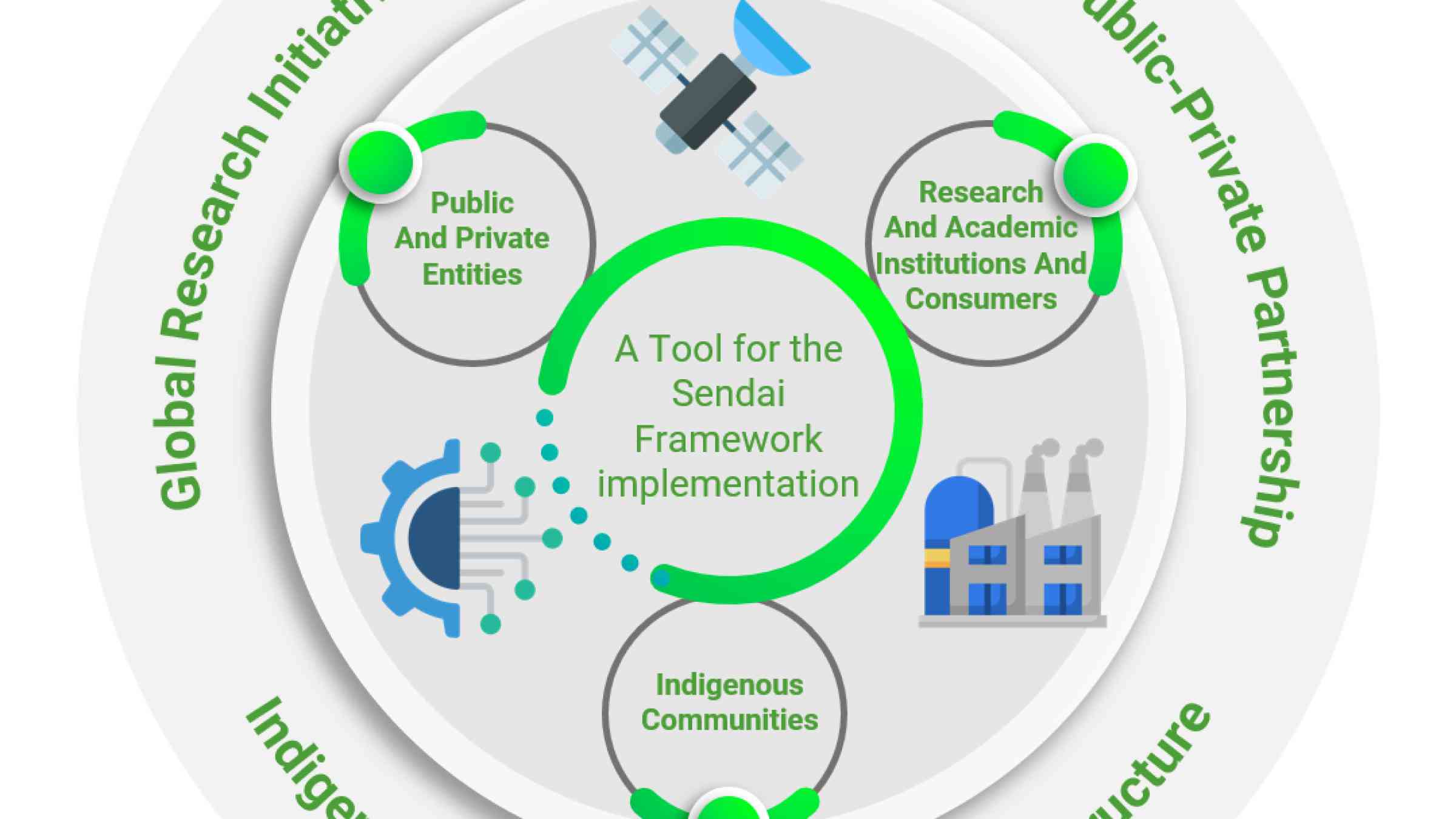Global Indigenous Knowledge Research Infrastructure: A Tool for the Sendai Framework implementation
The wealth of Indigenous Knowledge has not been well-recognized by DRR practitioners and policymakers (A/HRC/27/66). This online side event will identify, develop, and implement culturally relevant, emergent innovative approaches, tools, and methodologies for reducing risk and building resilience strategies which are scalable and replicable, and aimed to empower Indigenous communities.
The Indigenous Knowledge Research Infrastructure (IKRI), launched as a global partnership during UN 2021 Food Systems Summit, offers new opportunities to make use of geospatial information and AI to contribute to the measurement of indicators established to track advances in the implementation of the Sendai Framework and turning the global Covid-19 crises into an opportunity for the much-needed radical transformation.
IKRI expects to stimulate collaborations between disaster management authorities, developers and providers, and Indigenous communities for promoting nature-based solutions in DRR. IKRI is highlighted in the 2022 UN ECOSOC Partnership Forum and aims to contribute to HLPF2022.
Session objectives
- Introduce the IKRI Global Research Initiative and Knowledge Repository concept to DRR community
- Understand interests and the requirement of DRR stakeholders
- Stimulate collaborations between disaster management authorities, and the Indigenous communities for promoting nature-based solutions in DRR
- Examine policy and regulatory aspects of IKRI focusing on intellectual property rights related to indigenous knowledge
- Build global support network for design, development, and implementation of IKRI
Moderator
- Dr Milind Pimprikar, Chairman CANEUS
Speakers
- Drs. Mirna Cunningham, Spokesperson for UN SDG 10, Reducing Inequalities, VP of FILAC
- Mr. Gabriel Muyuy Jacanamejoy, Technical Secretary FILAC
- Dr Shirish Ravan, United Nations Office for Outer Space Affairs
- Dr Simon Lambert, University of Saskatchewan
Documents
Learn more
Learn more about Integrating Indigenous knowledge in building disaster resilience and usefulness of the Global Research Initiative and Knowledge Repository concept called IKRI- Indigenous Knowledge Research Infrastructure, a tool for Sendai Framework implementation.
Where do we stand
While the Indigenous knowledge-IK is vital for DRR covering land, oceans, ecosystems, and societal transitions, there are challenges and barriers for Indigenous communities to implement workable and replicable solutions in pursuit of building disaster and climate resilience.
- IK is widely scattered, at times, exists in small pockets; much of the IK is transferred through practices and not well-documents.
- There is an urgent need of capturing, preserving, and nurturing the DRR system-specific components of IK
- Need to derive simplified knowledge products that are outcome of research to create baselines and targets for Indigenous communities.
- Need to strengthen technical capacity of indigenous communities to consolidate existing knowledge that may be useful to assess disaster risks, vulnerabilities, and exposure to all hazards.
- Need to empower Indigenous youths to use integrated technologies driven DRR solutions to address the challenges with accelerated technological inequalities amongst the Indigenous Peoples.
Session guiding questions
- What are the challenges for integrating Indigenous knowledge with emerging technology-based solutions for implementation of Sendai Framework?
- What are the requirements of key stakeholders those interested in indigenous knowledge related to SFDRR, and how these can be incorporated into IKRI?
- How to tap into existing scattered data from the public/private domain for IKRI?
- How to develop and test IKRI prototype to make a robust infrastructure to support SFDRR?

Agenda
Location
BNDCC 2-Ground Floor
Online access
Participation
Open to those registered for the conferenceDetails
Contact
Milind Pimprikar milind.pimprikar@caneus.org Amparo Morales amparo.morales@filac.org Shirish Ravan Shirish.ravan@un.org